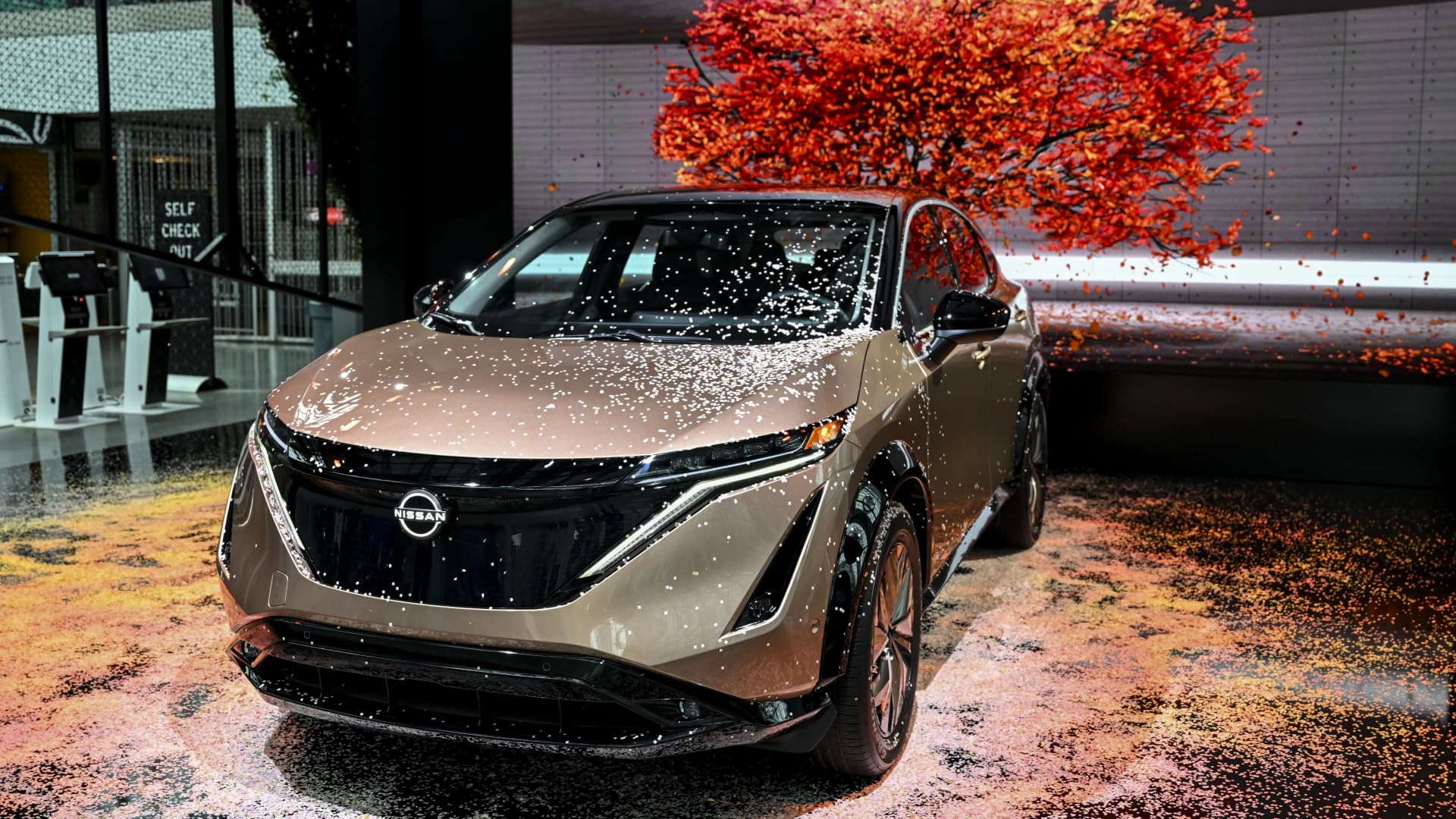Japanese carmarker Nissan announced Monday that all new models it launches in Europe will be fully electric, as it reaffirmed its aim for solely electric vehicle sales on the continent by 2030.
It said it was “pressing ahead” with the existing target just a week after the U.K. pushed back a ban on the sale of new gasoline and diesel car sales from 2030 to 2035.
“There is no turning back now,” Makoto Uchida, Nissan president and CEO, said in a statement. “We believe it is the right thing to do for our business, our customers and for the planet.”
It says one-third of the more than 1 million EVs it has sold worldwide have been in Europe.
Globally, Nissan plans to launch 27 electric and hybrid vehicles, which includes 19 all-electric models, by 2030. The company was an early pioneer in the EV space but has struggled with competition from Tesla and China’s BYD.
It also plans to introduce cobalt-free technology to reduce the cost of EV batteries by 65% by fiscal 2028 and launch a vehicle with its own all-solid-state batteries (ASSB) by that year. It claims these will reduce current charging times by two thirds.
Nissan partner Renault, as well as rivals Ford and Stellantis, have all announced plans to make their European passenger ranges fully electric by 2030.
The U.K.’s pushback of the 2030 sales target was criticised by Ford UK Chair Lisa Brankin, who said it created uncertainty and risked taking focus away from the EV transition.
Nissan confirmed one of its upcoming EVs will be made in its plant in Sunderland in the U.K.
“Sunderland is one of our major plants where we have history, cost competitiveness … and we would like to further show our electrification strategy here in this country,” Uchida told CNBC’s Arjun Khapal at the Nissan Design Europe studio in London.
Uchida said the automotive industry was “evolving and challenging everywhere in the world.”
In China, he said the company would look to launch cars more quickly and launch new models targeting specific consumers.

